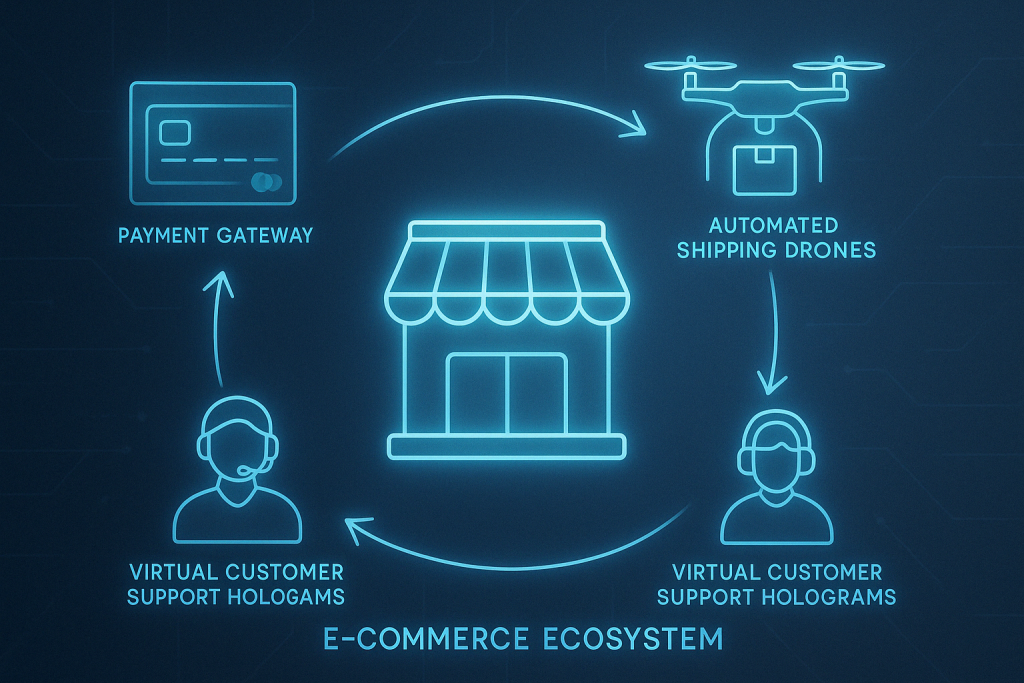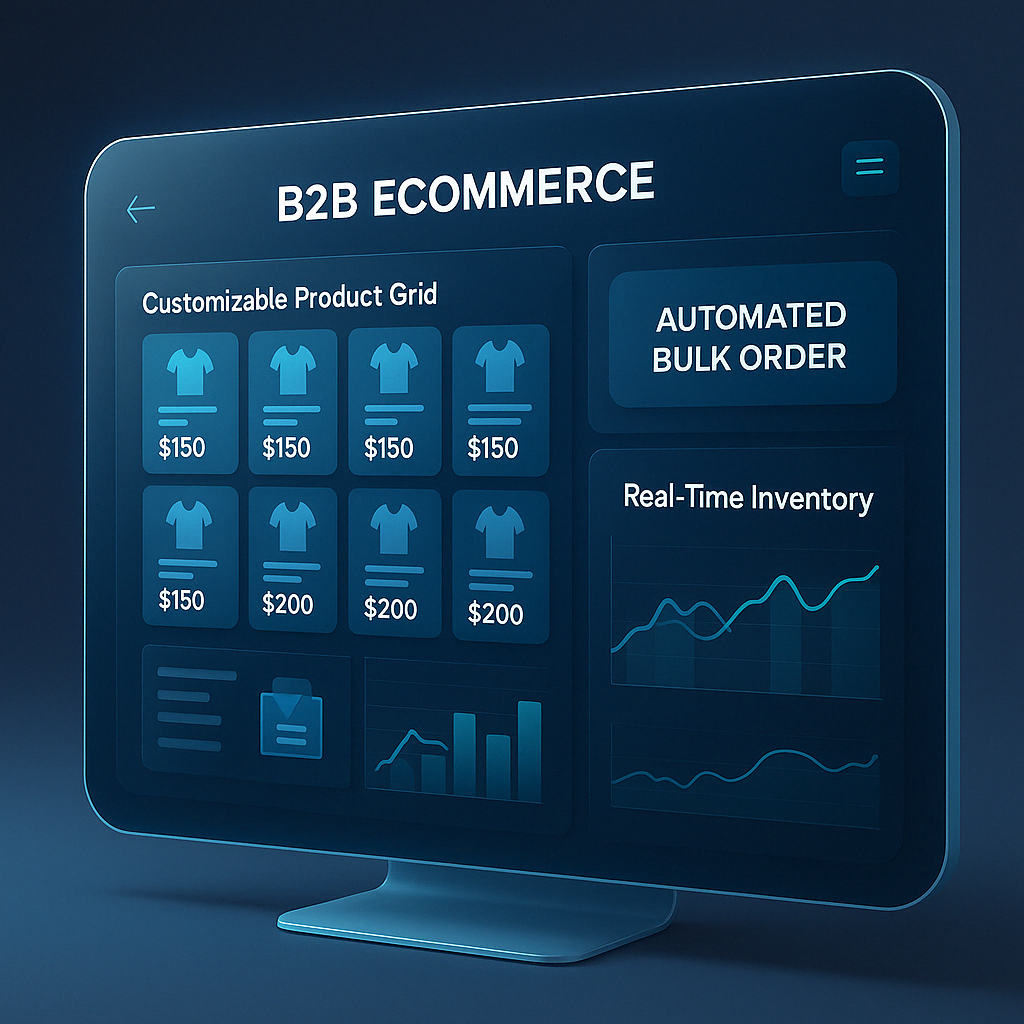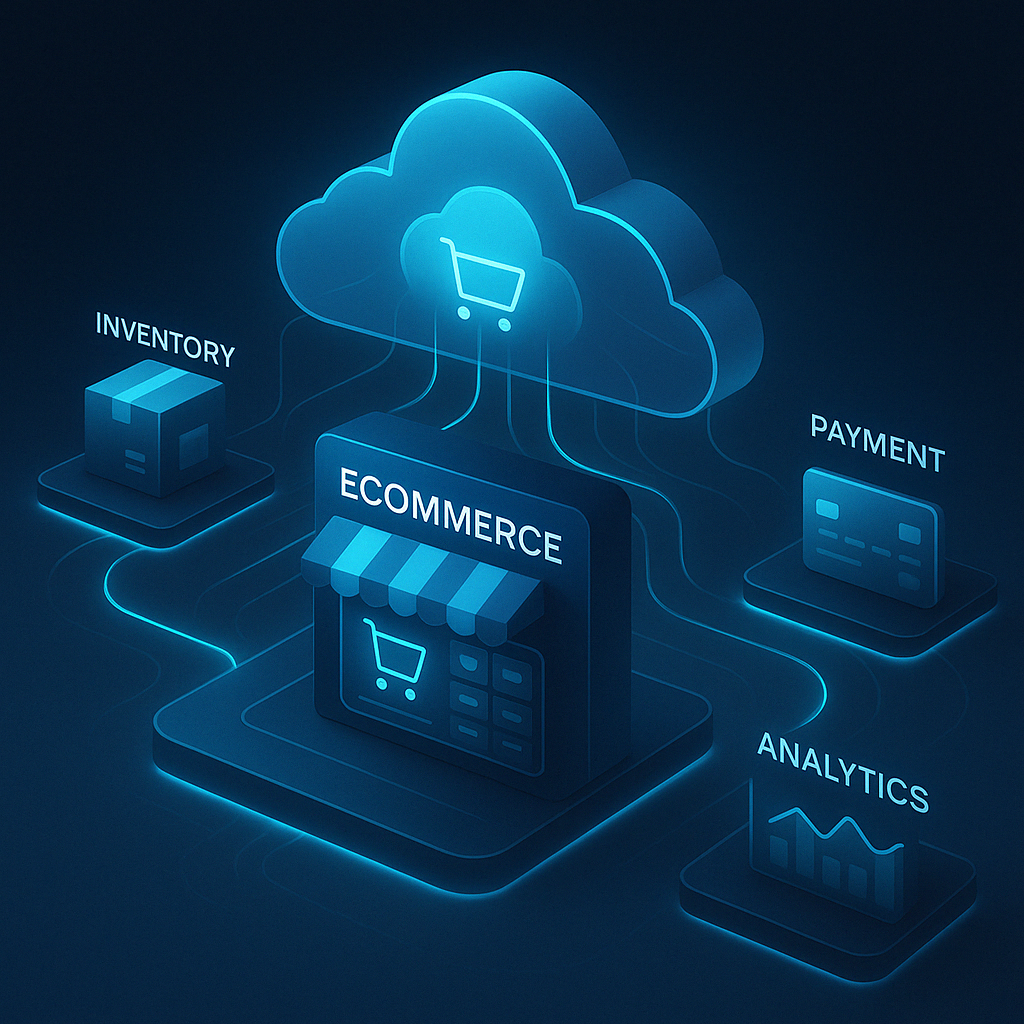Introduction: Why Your Business Needs an Ecommerce Solutions Service
In today’s hyper-connected digital world, having a seamless ecommerce solutions service is no longer optional—it’s essential. Whether you’re a startup or an enterprise, your online store’s efficiency, scalability, and customer experience depend heavily on the quality of ecommerce solutions implemented. From AI-powered personalization to robust shipping systems, the digital ecosystem is teeming with innovation designed to elevate your brand.
Importance of Ecommerce Solutions in a Competitive Market
The ecommerce industry has witnessed explosive growth over the past decade. In a competitive environment where online shoppers expect fast, reliable, and secure experiences, businesses need a solid foundation to stay relevant. An ecommerce solutions service not only helps manage your store but also drives conversions, enhances customer loyalty, and increases revenue.
By strategically incorporating keywords like ecommerce solutions service, ecommerce shipping solutions, and ecommerce payment solutions within the first 100 words, this article aims to rank higher while maintaining a natural and engaging tone.
What Is an Ecommerce Solutions Service?
An ecommerce solutions service refers to a comprehensive suite of digital tools and platforms that enable businesses to create, operate, and scale online stores. These services cover various aspects such as:
- Online storefront creation: Setting up a visually appealing, user-friendly website where customers can browse products and make purchases.
- Inventory and order management: Streamlining the process of tracking stock, processing orders, and handling returns.
- Payment gateway integration: Offering secure payment options for customers, including credit cards, mobile wallets, and buy now, pay later (BNPL) services.
- Shipping and logistics coordination: Ensuring timely delivery with real-time tracking and efficient handling of international shipping requirements.
- Customer relationship management (CRM): Managing customer data, communication, and support to build lasting relationships.
- Analytics and performance tracking: Gaining insights into sales, traffic, and customer behavior to inform data-driven decisions.
These services are designed to work together, creating a seamless ecommerce experience that meets the needs of both the business and its customers.
How Ecommerce Solutions Have Evolved Over Time
In the early days of ecommerce, businesses relied on simple shopping carts and basic payment processing systems. Over time, the industry has evolved to include sophisticated tools for marketing automation, personalization, multi-channel selling, and data analytics. Today’s ecommerce solutions services offer a one-stop shop for everything from website design to advanced AI-powered insights, enabling businesses to stay ahead of the competition.
Types of Ecommerce Solutions

Ecommerce solutions come in a wide range of categories, each tailored to specific business needs. Understanding the different types of solutions available can help businesses choose the right tools to enhance their operations and drive growth.
1. Ecommerce Development Solutions
At the core of any ecommerce operation is the platform it’s built on. Commonly used platforms include Shopify, WooCommerce (for WordPress), Magento (now Adobe Commerce), and BigCommerce. Ecommerce development solutions provide the infrastructure for creating and managing an online store.
Benefits:
Robust security features: Built-in security measures, including SSL certificates and compliance with PCI standards, ensure that customer data is protected.
Scalability: As your business grows, these platforms can scale to handle increased traffic, more products, and additional sales channels.
Custom UI/UX: Tailored user interfaces and experiences can help brands stand out and deliver a more engaging shopping journey.
2. Ecommerce Payment Solutions
Secure and flexible payment options are essential for any online store. Ecommerce payment solutions integrate various payment methods, from traditional credit cards to digital wallets and BNPL services.
Key Features:
- Multi-currency support: Make it easy for international customers to pay in their preferred currency.
- Fraud detection and prevention: Protect against fraudulent transactions with advanced monitoring and verification tools.
- Mobile wallet compatibility: With more shoppers using mobile devices, integrating popular wallets like Apple Pay and Google Pay is crucial.
3. Ecommerce Shipping Solutions
Efficient shipping and logistics play a pivotal role in customer satisfaction. Companies like DHL ecommerce solutions, FedEx, and Shippo offer comprehensive shipping services for ecommerce businesses.
Shipping Features to Look For:
Returns and reverse logistics handling: Streamlined return processes help maintain customer trust and encourage repeat business.
Real-time tracking: Customers can follow their packages from dispatch to delivery, boosting confidence and satisfaction.
Global shipping support: Expand your reach with services designed to handle international shipping and customs.

4. B2B Ecommerce Solutions

While many ecommerce platforms focus on direct-to-consumer (B2C) operations, B2B ecommerce solutions cater to wholesalers, manufacturers, and other businesses selling to other businesses. These solutions often include:
Customer-specific catalogs: Providing business clients with access to exclusive product selections and customized experiences.
Bulk ordering capabilities: Allowing B2B customers to place large orders quickly and efficiently.
Pricing customization: Tailoring pricing structures for different customer tiers or regions.
Advanced Features of Ecommerce Solutions: Customization, AI, and Scalability
The Rise of Custom Ecommerce Solutions
While out-of-the-box ecommerce platforms offer a quick and easy way to launch an online store, they’re not always the best fit for every business. As brands grow and their needs become more complex, they often find themselves constrained by the limitations of generic platforms. That’s where custom ecommerce solutions come in.
Benefits of Customization
A customized solution is tailored specifically to the unique requirements of a business. This means that every feature, integration, and user interface element is designed with the company’s goals and target audience in mind.
Key Advantages:
- Greater flexibility: Add or remove features as needed without being tied to a rigid platform structure.
- Enhanced branding: Fully control the look and feel of the website, ensuring consistency with the brand’s identity.
- Scalability: Build a solution that grows alongside your business, handling increased traffic, product catalogs, and customer demands.
- Improved performance: Optimize site speed, mobile responsiveness, and user experience for a seamless shopping journey.
Use Cases for Custom Solutions
Custom ecommerce solutions are especially beneficial for businesses that operate outside the norm or require advanced features. Examples include:
- Subscription-based ecommerce: Platforms that support recurring billing, membership management, and personalized subscription tiers.
- Multi-vendor marketplaces: Complex marketplaces with multiple sellers, commission structures, and advanced search and filtering capabilities.
- B2B portals: Comprehensive systems with customer-specific pricing, bulk ordering, and ERP integration.
Leveraging AI Solutions for Ecommerce

Artificial Intelligence (AI) is revolutionizing ecommerce by enabling businesses to offer highly personalized experiences, optimize operations, and predict future trends. From chatbots that provide instant customer support to predictive analytics that guide inventory decisions, AI is becoming a critical component of modern ecommerce solutions.
AI-Driven Personalization
AI allows online retailers to tailor content, product recommendations, and marketing messages to individual customers. By analyzing past purchases, browsing behavior, and demographic data, AI-powered tools can:
- Suggest relevant products: Boost average order values by showing customers items they’re more likely to purchase.
- Optimize email campaigns: Deliver personalized email offers that resonate with each recipient.
- Enhance user experience: Create a more engaging shopping experience with dynamic content and customized promotions.
Chatbots and Virtual Assistants
AI chatbots provide 24/7 support, helping customers find products, answer common questions, and resolve issues without human intervention. This not only improves customer satisfaction but also reduces support costs and response times.
Examples of Chatbot Use Cases:
- Assisting with product selection based on user preferences.
- Guiding customers through the checkout process.
- Offering personalized discounts and promotions during live chats.
Predictive Analytics
AI-powered analytics tools help ecommerce businesses make smarter decisions by forecasting trends and identifying patterns. Predictive analytics can:
- Improve inventory management: Prevent stockouts and overstocking by predicting demand for specific products.
- Refine marketing strategies: Identify the best channels, times, and messages to reach target audiences.
- Enhance pricing strategies: Determine optimal price points based on market trends and customer behavior.
Cloud-Based Ecommerce Solutions

As ecommerce operations grow, scalability becomes a major concern. Traditional hosting setups often struggle to handle sudden spikes in traffic, leading to slow load times or site crashes. Cloud-based ecommerce solutions address these challenges by providing a highly flexible and resilient infrastructure.
Why Choose Cloud-Based Solutions?
Reliability and Uptime:
Cloud platforms are designed for maximum uptime, ensuring that your store remains accessible even during high traffic events.
Scalability on Demand:
With cloud hosting, you can quickly scale resources up or down to match traffic levels, avoiding performance bottlenecks.
Cost Efficiency:
Cloud solutions operate on a pay-as-you-go model, meaning you only pay for the resources you actually use.
Enhanced Security:
Cloud providers offer built-in security measures, including DDoS protection, encryption, and compliance with industry standards.
Leading Cloud Ecommerce Providers
Several platforms offer robust cloud-based solutions that cater to ecommerce businesses of all sizes:
- Salesforce Commerce Cloud: An enterprise-grade solution known for its powerful AI integration and multi-channel capabilities.
- AWS (Amazon Web Services): Provides a flexible, reliable infrastructure for ecommerce sites, with tools for analytics, machine learning, and global delivery.
- Google Cloud Platform (GCP): Offers advanced scalability and integration with Google’s ecosystem of services, including BigQuery and TensorFlow.

Omnichannel Strategies for Ecommerce Success
An effective ecommerce strategy doesn’t just focus on a single sales channel. By adopting an omnichannel approach, businesses can reach customers wherever they shop—whether it’s on a website, a mobile app, social media, or even in physical stores.
Key Components of an Omnichannel Strategy:
Seamless customer experience: Allow customers to switch between channels—such as starting a purchase on a mobile device and completing it on a desktop—without losing their progress.
Unified inventory management: Sync stock levels across all channels to prevent overselling or underselling.
Consistent branding and messaging: Maintain a cohesive look and feel across all platforms.
Enhancing Ecommerce Performance Through SEO, Case Studies, and Best Practices
Technical SEO Tips for Ecommerce Platforms

Search engine optimization (SEO) is a cornerstone of ecommerce success. By optimizing your site’s technical structure, you ensure that your products and content are more discoverable to both search engines and potential customers. Here are some essential technical SEO best practices tailored for ecommerce businesses:
1. URL Structure
Keep It Clean and Simple:
Use short, descriptive URLs that include target keywords. For instance, instead of a long, complicated string, opt for:/ecommerce-solutions-service
Avoid Dynamic Parameters:
Whenever possible, avoid session IDs, tracking codes, and other dynamic elements in URLs. A static, keyword-rich URL is both easier to remember and better for SEO.
2. Mobile Optimization
Responsive Design:
With mobile commerce continuing to rise, ensuring your site is fully responsive is crucial. A mobile-friendly site improves user experience and can lead to higher rankings on Google’s mobile-first index.
Speed and Performance:
Use tools like Google’s PageSpeed Insights to identify and fix performance issues. Compress images, leverage browser caching, and use a content delivery network (CDN) to reduce load times.
3. Schema Markup
Rich Snippets for Products:
Implement structured data for products, reviews, and ratings. This can enhance search listings with star ratings, price ranges, and availability, making your links more appealing and clickable.
Breadcrumbs Schema:
Add breadcrumb markup to improve navigation and help search engines understand your site’s hierarchy.
4. Security and HTTPS
SSL Certificates:
Secure your site with an SSL certificate to ensure that data transmitted between users and your server is encrypted. HTTPS is also a ranking signal, and many browsers flag non-HTTPS sites as “not secure.”
PCI Compliance:
For ecommerce stores handling credit card information, compliance with PCI DSS (Payment Card Industry Data Security Standard) is mandatory. Ensure your platform and hosting environment meet these requirements.
Case Studies: Real-World Examples of Ecommerce Success
Case Study 1: A Fashion Retailer Boosts International Sales
A global fashion brand partnered with a leading ecommerce solutions provider to expand into new international markets. By implementing a custom B2B ecommerce solution integrated with a multilingual platform and local payment gateways, the retailer achieved remarkable results:
- 300% increase in international sales.
- 50% reduction in cart abandonment rates.
- Faster loading times across all regions.
This case highlights how a tailored ecommerce strategy, combined with advanced tools and local integrations, can unlock untapped revenue streams.
Case Study 2: A B2B Supplier Streamlines Bulk Ordering
A B2B auto parts supplier faced challenges with managing large-volume orders and maintaining accurate inventory levels. By switching to a custom ecommerce platform integrated with their existing ERP system, they achieved:
- 25% increase in order efficiency.
- Significant reduction in manual data entry errors.
- Improved customer satisfaction due to quicker order fulfillment.
This demonstrates the value of investing in a solution that aligns perfectly with a company’s unique workflows and customer base.
Best Practices for Choosing the Right Ecommerce Solutions Service
When it comes to selecting an ecommerce solutions service, there’s no one-size-fits-all answer. Each business has unique needs, goals, and budgets. To make the right choice, consider the following best practices:
1. Identify Your Specific Needs
What Are You Selling?
Are you focusing on physical products, digital downloads, subscriptions, or services? The nature of your offerings will heavily influence the type of ecommerce solution you need.
What Features Are Non-Negotiable?
List the must-have features, such as multi-currency support, mobile responsiveness, advanced search filters, or integration with existing software like CRMs or accounting tools.
2. Scalability and Flexibility
Room to Grow:
Choose a platform that can handle increased traffic, a growing product catalog, and additional sales channels.
Customizability:
If your business model evolves, will your chosen platform be able to adapt? A flexible solution prevents the need for a costly migration down the line.
3. Total Cost of Ownership
Beyond Subscription Fees:
Consider the total cost, including hosting, third-party app integrations, transaction fees, and potential development expenses.
Long-Term Value:
Investing in a slightly more expensive solution that meets all your needs may be more cost-effective than opting for a cheaper platform that requires multiple workarounds.
Conclusion: The Path Forward with Ecommerce Solutions
The ecommerce landscape is continually evolving, driven by advancements in technology, changing consumer expectations, and a growing emphasis on personalization. To stay competitive and thrive, businesses must embrace modern ecommerce solutions services that go beyond the basics.
Key Takeaways:
- Customization and AI: Leveraging custom solutions and AI-driven tools can provide a competitive edge by delivering tailored experiences and predictive insights.
- Cloud Scalability: Cloud-based ecommerce solutions offer the reliability and flexibility needed to handle fluctuating traffic and expand into global markets.
- Technical SEO and Performance: Properly optimized sites, responsive design, and robust security measures ensure a seamless experience for both search engines and users.
By following these best practices, drawing inspiration from real-world successes, and keeping a forward-thinking mindset, you can create a thriving ecommerce operation that not only meets today’s demands but also positions your brand for long-term growth.
Ready to transform your ecommerce strategy?
Contact UXOcean today and let us craft a custom solution that drives growth, increases revenue, and enhances your customers’ experience.
👉 Start your ecommerce transformation today!
Contact Here: Omor
READ MORE:






6 comments